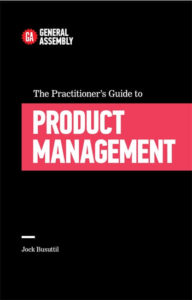
PRODUCTHEAD: Better teams need better leaders
PRODUCTHEAD is a regular newsletter of product management goodness,
curated by Jock Busuttil.
hail to the product
tl;dr
Leaders have a disporportionate impact on the psychological safety of their teams
Effective teams feel their work means something and makes a difference
A servant leader’s motivation begins with a conscious choice to serve others without self-interest
A leader can show support and respect by approving and following a team’s social charter
hello and happy new year
Welcome back! I hope you had a good holiday break. We’re straight back into it, so here’s a positive topic to start off the new (and hopefully more upbeat) year.
If you’ve worked in an organisation for any length of time, you’ll probably have noticed the extent to which people follow the lead of their boss, consciously or otherwise. If their boss is belligerent and shouty, then that gives (some) people permission to behave in a similar way. The boss sets the behavioural norm for the company.
Building better teams starts with the leadership for that team. Leaders have more responsibility than most for setting a good example for the behaviour expected from everyone.
Amy Edmondson, who first coined the term ‘psychological safety’, observed in her 2014 TEDx talk that many organisations only were concerned with motivation and accountability — rewarding success and punishing failure. She likened this to the gas pedal for accelerating an organisation.
She also found that the best performing organisations were those that combined motivation and accountability with a culture of openness — psychological safety. Having greater psychological safety was like taking your foot off the organisation’s brake pedal.
So this week, I’ve pulled together some thought-provoking content on what good leadership looks like, and how that improves the performance of your team.
Speak to you soon,
Jock
what to think about this week
Clumsy Colossus or Gentle Giant
Julia Whitney takes us through the five social concerns in David Rock’s SCARF model of psychological threats that drive human behaviour: status, certainty, autonomy, relatedness, fairness. Leaders have a great deal of power over these social concerns.
Use your “outsized impact” to enhance your team
[JULIA WHITNEY / MIND THE PRODUCT]
Understand Team Effectiveness
The philosopher Aristotle once wrote, “the whole is greater than the sum of its parts”. The goal of Google’s Project Aristotle was to answer the question: “What makes a team effective at Google?”
One of their outputs was a helpful guide for managers to foster psychological safety on their teams.
Learn the dynamics of effective teams
[GOOGLE RE:WORK]
Product Management Coaching
Whether you’re new to product management or have been a product manager for years, a coaching session can help you to step up your career.
We’ve coached people wanting to get into product management, product people with nobody in their organisation to manage them, and experienced product managers preparing to apply for a promotion.
A proportion of the fees from every coaching session is donated to charity. Contact us if you’re interested in finding out more.
The Servant as Leader
In his essay The Servant as Leader from 1973, Robert Greenleaf writes that the “best test” of servant leadership is to make sure that other’s people highest priority needs are being served.
Nikos Batsios provides a neat little summary of some of the Greenleaf’s key characteristics of a servant-leader.
[ESCAPE THE LOCAL OPTIMUM]
Many Things Are Ok
When I was working at GDS (the UK’s Government Digital Service), I noticed some distinctive sheets of paper posted up all over the office. Each contained a simple list explicitly calling out that it was okay to behave like a human being at work, rather than some buttoned-up, emotionless automaton. Giles Turnbull tells the story of the list his team wrote that went viral.
It’s ok to remix your own version
[GILES TURNBULL / USE THE HUMAN VOICE]
recent posts
The dirty little secrets of decision making
As individuals, we’re continually evaluating options and taking decisions. As product managers, we have the additional responsibility to balance the often competing needs of users, the business and wider ethical considerations. What makes one decision better than another?
[I MANAGE PRODUCTS]
What’s the difference between a product manager and a business analyst?
I’m asked questions about product management from time to time. This is one I’ve answered recently.
Like Sherlock Holmes for your business
[I MANAGE PRODUCTS]
Manage the whole product
A product is often a complex combination of several products and services. Some you create yourself, some are created by others. You’re responsible for the whole lot, even if they’re not all directly in your control.
What do Google, Tesla and Apple have in common with the Michelin Guide?
[I MANAGE PRODUCTS]
What lessons from antiquity would you apply to product management?
Hi Jock,
So this this might seem a bit odd, but are there any lessons from antiquity given your background in Classics that one might apply to product management in the year 2020?
Best regards,
R
Seeking meaning to 2020 from ancient Greece
[I MANAGE PRODUCTS]
can we help you?
Product People is a product management services company. We can help you through consultancy, training and coaching. Just contact us if you need our help!
Helping people build better products, more successfully, since 2012.
PRODUCTHEAD is a newsletter for product people of all varieties, and is lovingly crafted from piles of odd socks.


Leave a Reply